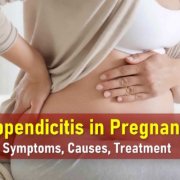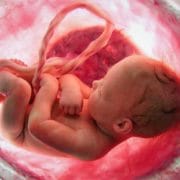Ectopic Pregnancy: Symptoms, Risks, and Treatments
What is Ectopic Pregnancy?
Pregnancy involves a series of intricate processes, one of which is the journey of a fertilized egg to the uterus, where it implants and begins to grow. In an ectopic pregnancy, however, the fertilized egg implants outside the uterus, most commonly in a fallopian tube but potentially in the abdominal cavity or cervix. While a pregnancy test may confirm pregnancy, an ectopic pregnancy cannot progress normally as a fertilized egg cannot thrive outside the uterus.
According to the American Academy of Family Physicians (AAFP), ectopic pregnancies occur in approximately 1 in 50 pregnancies. Without timely intervention, an ectopic pregnancy can lead to severe complications, making early detection and treatment essential. Prompt care can lower the risk of long-term health issues, improve chances for future healthy pregnancies, and safeguard a woman’s overall well-being.
Who Is at Risk for an Ectopic Pregnancy?
Certain conditions and lifestyle factors increase the risk of ectopic pregnancy, particularly abnormalities in the fallopian tubes. These abnormalities may result from the following:
- Pelvic inflammatory disease (PID): an infection affecting the uterus, fallopian tubes, and other pelvic structures.
- Previous ectopic pregnancy: having experienced an ectopic pregnancy in the past raises the likelihood of recurrence.
- Pelvic or abdominal surgeries: procedures in these areas can result in scarring or structural changes in the fallopian tubes.
- Infertility: underlying conditions or treatments may contribute to tubal abnormalities.
- Endometriosis: this condition can cause scar tissue and abnormalities in reproductive organs.
- Prior tubal surgery, such as sterilization: procedures altering the tubes can increase the risk.
- Sexually transmitted infections: these infections can lead to inflammation or scarring in reproductive structures.
Additional factors that may heighten the risk of ectopic pregnancy include:
- Smoking: cigarette use can damage the fallopian tubes and impair their function.
- Age: advanced maternal age is associated with an increased risk.
- Fertility treatments: procedures like in vitro fertilization (IVF) can sometimes result in ectopic implantation.
Symptoms of an Ectopic Pregnancy
Ectopic pregnancy can manifest through various symptoms, which may include:
- Abnormal vaginal bleeding: Any bleeding outside the usual menstrual cycle is considered abnormal. It can range from light spotting to heavier bleeding.
- Shoulder pain: Blood accumulation under the diaphragm from a ruptured tube can cause referred pain felt in the shoulder.
- Abdominal or pelvic pain: Pain may present as sharp or cramping, persistent or intermittent, and typically occurs on one side.
- Weakness, dizziness, or fainting: These symptoms often result from internal blood loss and should be addressed urgently.
These signs can appear before you suspect pregnancy. If you experience any of these symptoms, it is crucial to contact your healthcare provider immediately.
Diagnosing Ectopic Pregnancy
If an ectopic pregnancy is suspected, your healthcare provider will perform a series of evaluations to confirm the diagnosis:
- Pelvic examination: A physical exam to check for abnormalities or tenderness.
- Vital sign monitoring: Blood pressure and pulse measurements to assess for signs of internal bleeding, such as low blood pressure.
- Ultrasound imaging: A non-invasive test using sound waves to identify early pregnancy and determine the location of implantation.
- hCG blood tests: Measuring the hormone human chorionic gonadotropin (hCG), which is elevated in pregnancy, to monitor levels over time.
Early and accurate diagnosis is critical to managing ectopic pregnancies effectively, minimizing risks, and preserving reproductive health.
Types of Ectopic Pregnancy
Ectopic pregnancies can occur in various locations outside the uterus, with the vast majority taking place in the fallopian tubes. Here’s a breakdown of the different types:
- Fallopian Tube: About 95% of ectopic pregnancies occur in the fallopian tubes. These can be further classified as:
- Ampullary: Occurs in the middle section of the fallopian tube.
- Isthmic: Found in the upper part of the fallopian tube near the uterus.
- Fimbrial: Located at the end of the fallopian tube.
- Interstitial: Occurs inside the portion of the fallopian tube that crosses into the uterus. This type makes up about 3% of ectopic pregnancies.
- Cesarean Section Scar: Less than 1% of ectopic pregnancies occur within a previous C-section scar.
- Cervical: This rare type happens on the cervix, less than 1% of cases.
- Cornual: Involves an abnormality in the shape of the uterus, with less than 1% of pregnancies occurring here.
- Ovarian: Ectopic pregnancies may also occur in or on the ovary, though these are extremely rare.
- Intramural: This type occurs in the muscle layer of the uterus, also less than 1% of cases.
- Abdominal: In very rare cases, the ectopic pregnancy may implant in the abdominal cavity.
- Heterotopic: This occurs when there is an ectopic pregnancy alongside a normal intrauterine pregnancy, an extremely rare occurrence.
Treatment of Ectopic Pregnancy
Treating an ectopic pregnancy is crucial to prevent serious complications such as internal bleeding, which can be life-threatening. There are three main treatment options, depending on the severity of the condition:
- Surgery: Surgery is recommended when there is a risk of internal bleeding. The procedure is often performed laparoscopically, which is minimally invasive. In some cases, an open surgery may be necessary to provide better visibility for the surgeon. This involves a larger incision and may require a longer recovery period.
- Medication: If the ectopic pregnancy is detected early and there is no sign of internal bleeding, medication may be an option. Methotrexate is commonly used to stop the growth of the pregnancy. While it can be effective, it may require multiple doses or surgery if the pregnancy does not resolve. Important considerations before treatment include liver and kidney function tests, and a waiting period of three to four months before trying to conceive again.
- Observation: In some cases where the ectopic pregnancy is likely to resolve naturally, your doctor may recommend monitoring the condition through blood tests and ultrasounds. If any concerning symptoms arise during this period, such as severe pain or heavy bleeding, immediate medical attention is necessary.
Impact on Future Pregnancies
Having an ectopic pregnancy increases the risk of experiencing another one in the future. This could be due to underlying conditions that contributed to the first ectopic pregnancy or due to damage caused to the fallopian tubes during treatment. If a fallopian tube is removed, it can also affect fertility, but many women can still conceive naturally with one functioning tube. In cases where both tubes are damaged or removed, assisted reproductive technologies like in vitro fertilization (IVF) may be recommended.
It is generally advised to wait for two months after surgery and three to four months after medication before trying to conceive again. During this time, using contraception is important. Before attempting to get pregnant again, it’s also recommended to take folate supplements for at least a month before conception and during the first trimester of pregnancy.
Additionally, anyone who has had an ectopic pregnancy should undergo early ultrasound scans in future pregnancies to ensure the pregnancy is in the correct location. It’s common for women to have emotional concerns about trying for another pregnancy after an ectopic pregnancy, so speaking with a counselor or healthcare provider about these feelings can be beneficial.
Prevention of Ectopic Pregnancy
Ectopic pregnancies cannot be entirely prevented. However, there are steps you can take to minimize your risk. This includes practicing safe sex to avoid sexually transmitted infections (STIs), which can damage the fallopian tubes, and consulting your gynecologist before trying to conceive, especially if you have a history of reproductive health issues.
Frequently Asked Questions (FAQs)
Can my pregnancy continue after an ectopic pregnancy?
Once an ectopic pregnancy is confirmed, it cannot continue safely. Immediate treatment is required to prevent serious complications.
Is it possible to conceive again after an ectopic pregnancy?
Yes, many women are able to conceive again after an ectopic pregnancy. However, the risk of recurrence is higher, and it’s important to follow up with your doctor for guidance.
How long should I wait before trying to get pregnant again after an ectopic pregnancy?
It is generally recommended to wait at least three to four months before attempting to conceive again, allowing time for your body to heal. Your doctor can advise you on the best timeline based on your individual situation.
Can I still have a baby if one of my fallopian tubes is removed?
Yes, you can still conceive naturally with one functioning fallopian tube. If both tubes are removed or severely damaged, IVF can be an option to help achieve pregnancy.
What causes an ectopic pregnancy?
Ectopic pregnancies typically occur when the fertilized egg cannot reach the uterus due to damage or abnormalities in the fallopian tubes. Factors like pelvic inflammatory disease (PID), previous surgeries, endometriosis, sexually transmitted infections (STIs), and certain fertility treatments can increase the risk of an ectopic pregnancy.
When do ectopic pregnancy symptoms start?
Ectopic pregnancy symptoms can begin as early as 4 to 6 weeks after conception, though they may be mistaken for normal early pregnancy symptoms. As the pregnancy progresses and the fertilized egg grows, symptoms like abdominal pain, bleeding, and dizziness become more apparent.
What are the signs of a ruptured ectopic pregnancy?
A ruptured ectopic pregnancy is a medical emergency. Signs include severe abdominal pain, shoulder pain, heavy vaginal bleeding, dizziness, fainting, or a feeling of weakness. Immediate medical intervention is crucial to prevent severe complications like internal bleeding.
Does the belly grow with an ectopic pregnancy?
No, the belly typically does not grow with an ectopic pregnancy because the fertilized egg does not implant in the uterus, where the pregnancy would normally grow. The growth of the belly in a healthy pregnancy is due to the expanding uterus, which does not occur in ectopic pregnancies.
What is methotrexate and how is it used to treat an ectopic pregnancy?
Methotrexate is a medication used to treat ectopic pregnancy by stopping the growth of the pregnancy. It is typically used when the ectopic pregnancy is small and there is no risk of rupture or severe internal bleeding. Methotrexate works by interfering with the growth of the cells in the developing embryo. After receiving the injection, patients need to be closely monitored with blood tests to ensure the pregnancy is being resolved. If the treatment is not successful, additional doses or surgery may be required. It’s important to note that methotrexate is not safe for use during breastfeeding and requires careful monitoring by a healthcare provider.
Closing Thoughts
Understanding ectopic pregnancy is essential for recognizing the symptoms early and seeking prompt treatment. While ectopic pregnancies are rare, their potential severity makes awareness crucial for all women of reproductive age. If you experience symptoms that might suggest an ectopic pregnancy, it is important to seek immediate medical attention to prevent complications. Always follow your healthcare provider’s advice regarding future pregnancies, and consider consulting them if you have concerns about your reproductive health or risk factors. Your safety and well-being should always be the top priority when dealing with pregnancy-related issues.









